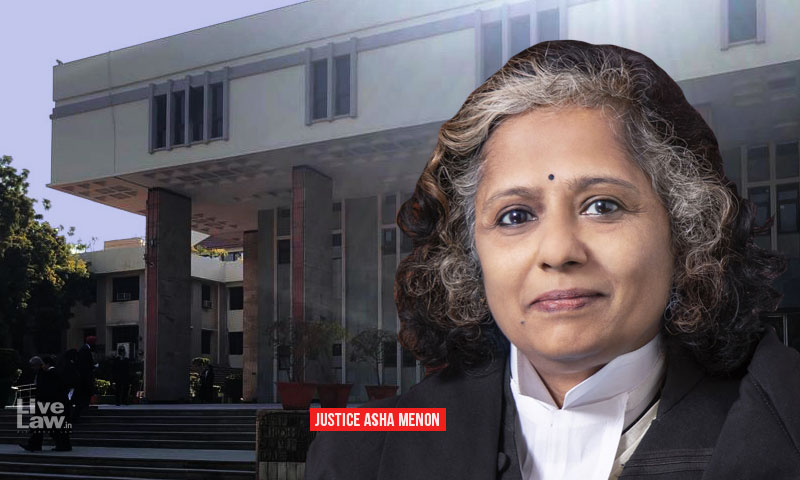Making charges cannot nullify prosecution’s right to get expert opinion on voice samples after court’s permission: Delhi High Court
The Delhi High Court observed that the laying of charges cannot nullify the right of the prosecution to obtain an expert opinion on voice samples which it has been permitted to take by the court.
Judge Asha Menon added that the purpose of taking a voice sample is to investigate a crime, but it would be incorrect to interpret this to mean that the voice sample should only be taken when the act of charge is filed and not afterwards.
The Court made the comments while dealing with a plea filed by a defendant in a case relating to the leak of the questionnaire drawn up for the (judicial) (preliminary) examination of the civil services of Haryana in 2017. trial was later transferred to Delhi.
The applicant had applied to the court of first instance to ask the police not to force him to give his voice sample.
Pursuant to the order dated July 2, 2022, the Magistrate Court declined to issue such directions, observing that assuming that the High Court of Punjab and Haryana had granted the petitioner liberty to file a further petition in the Delhi High Court, he failed to do so. until this date ; thus ordering the applicant to give his voice sample also fixing the date for this purpose as 11 July 2022 at CFSL, Chandigarh.
The petition was therefore filed by the petitioner seeking the annulment of the orders dated September 26, 2018, passed by the Chandigarh Magistrates Court and the consequential orders dated July 2, 2022 passed by the special judge here. The order of September 26, 2018 allowed the SIT to obtain the applicant’s voice sample.
It was argued on behalf of the petitioner that forcing him to give his voice sample to the SIT violated his fundamental rights under Article 20(3) of the Constitution of India.
It was further argued that the Chandigarh Magistrates Court perversely rejected his claim which claimed that he was suffering from severe stress and mental depression and therefore his consent was not free consent.
While rejecting the plea, the Court noted that the court of first instance had ascertained the voluntary nature of the declaration suffered by the applicant with regard to the donation of his voice sample.
“The request to rescind this consent was rightly denied. In light of this order dated January 8, 2019, it is clear that there is no basis to rescind the order dated September 26. 2018, as inappropriate or perverse.” It said.
The Court found that the instructions to provide a voice sample had been issued while the investigations were pending, but the petitioner managed to avoid complying with this order.
“Today’s position is that as directed by the Punjab and Haryana High Court, charges have been laid, but this cannot nullify the right of the prosecution to obtain notice of expert on voice samples which she had been authorized to take, also from the petitioner,” observed the Court.
He added
“The purpose of taking a voice sample is to investigate a crime, but it would be incorrect to interpret this to mean that the voice sample should only be taken at the time the indictment is deposed and not afterwards, as a shrewd accused, like the present petitioner, would be able to frustrate the right of the investigative agencies to obtain a voice sample, even if the court had authorized it. of the court cannot be rendered inoperative in this way.”
The Court thus rejected the plea ordering that the special judge be able to fix a date on which the applicant must appear before the CFSL, Chandigarh, for having given his voice sample.
Case Title: SUNIL KUMAR ALIAS TITU v. CHANDIGARH UT STATE
Click here to read the order


Comments are closed.